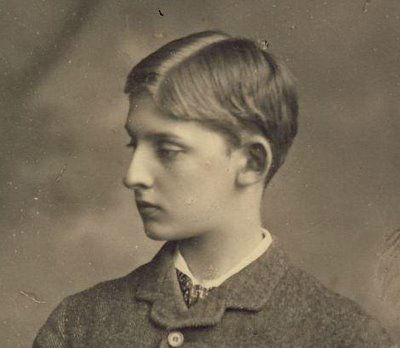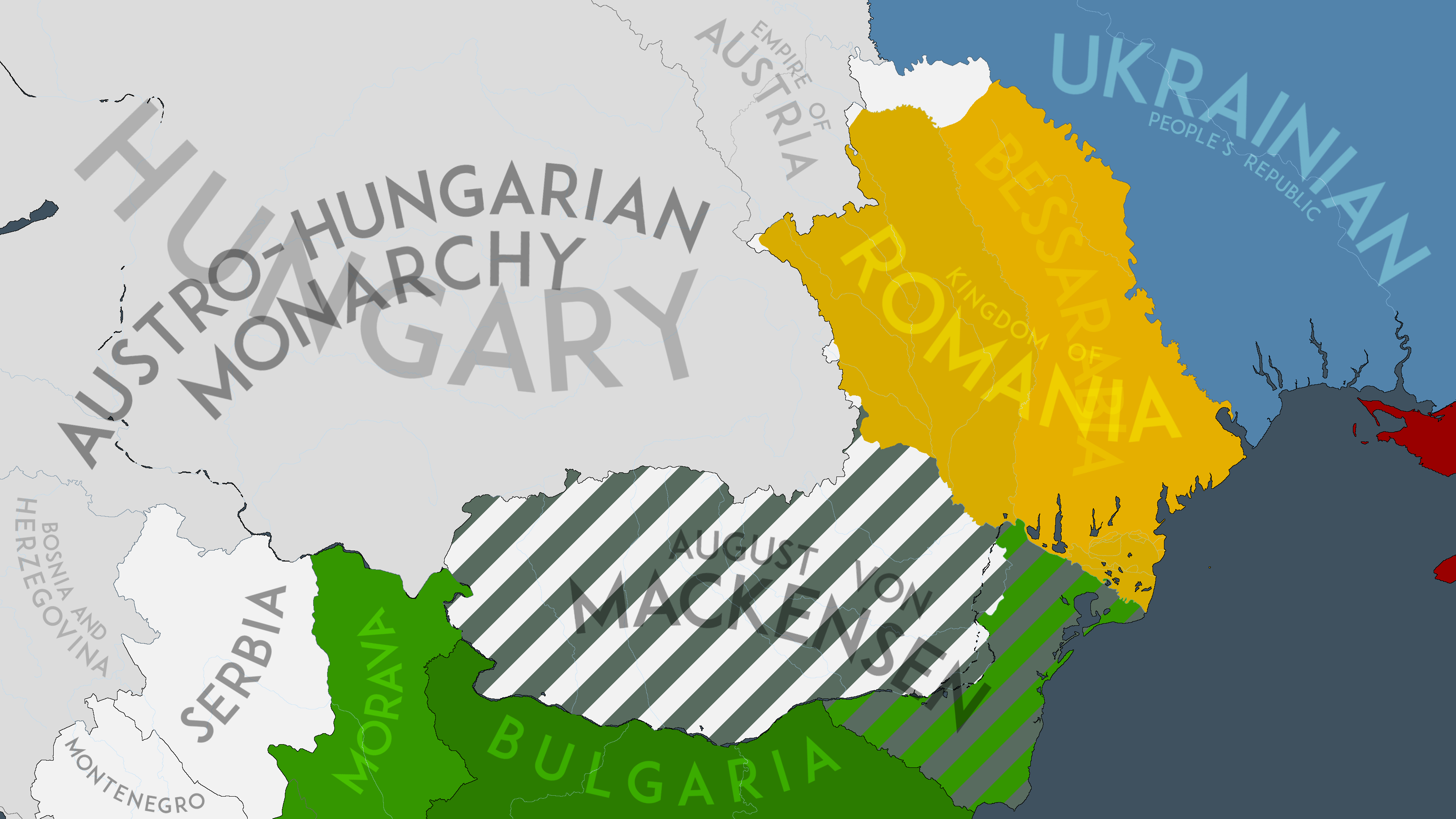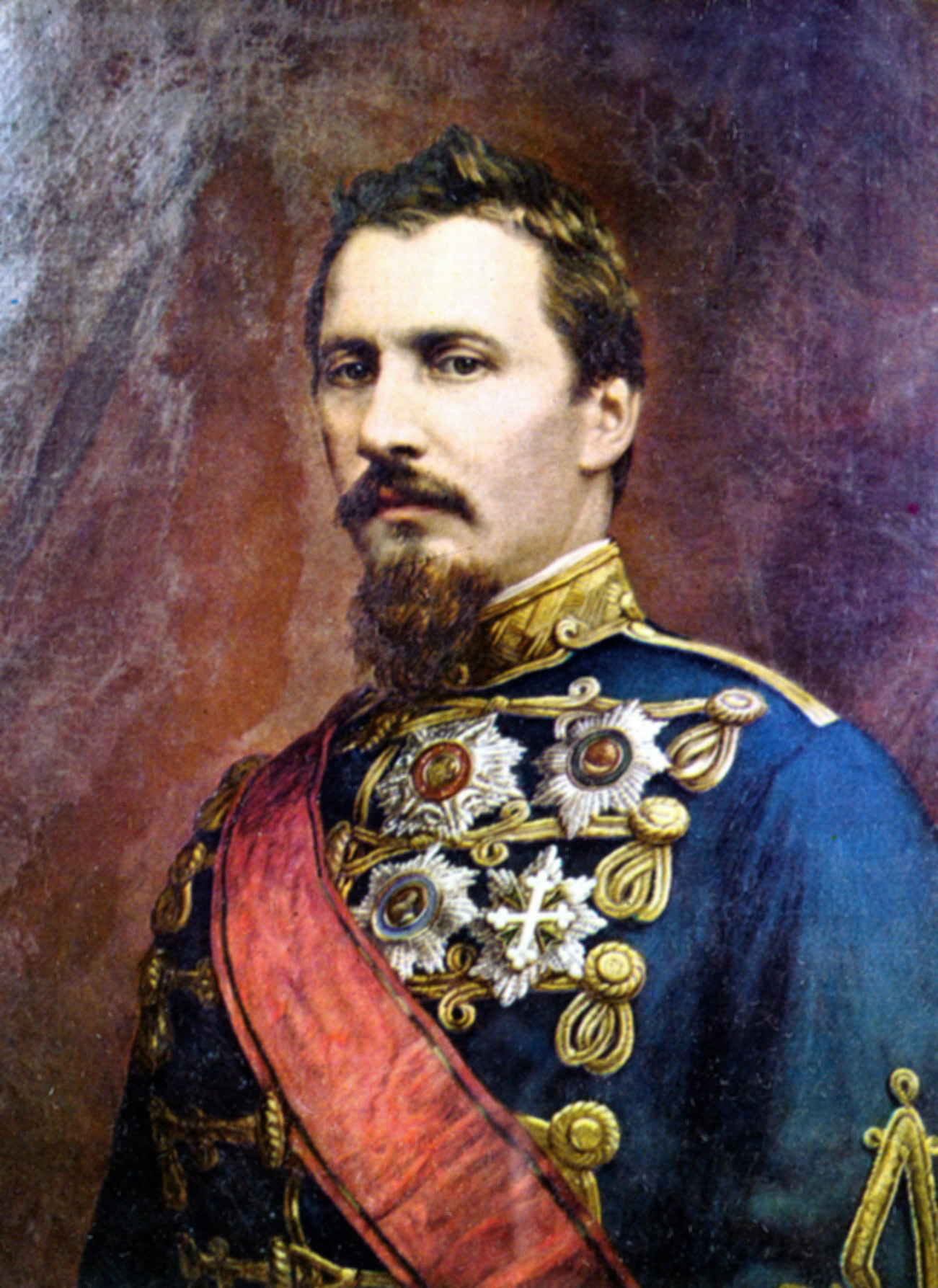|
Sergiu Niță
Sergiu Niță (1883 – 3 March 1940) was a politician and lawyer from Romania. He served as Minister for Bessarabia (1920–1921, 1926–1927) in the Alexandru Averescu, Averescu cabinets. Biography Sergiu Niță was born on March 21 (March 9 according to the old style) in 1883 in the Bessarabian village Peresecina (now Orhei District of the Republic of Moldova) into the family of a priest, Fyodor Niță, the rector of St. Michael's Church in the village of Peresecina. After a while, the family moved to Chișinău. Education Sergiu Niță studied in Chișinău. Father Fyodor Niță, a graduate of the Chișinău Theological Seminary, was a friend with the Moldavian writer Constantin Stere, who convinced him to send his son Sergiu to study at the Law Faculty of the Alexandru Ioan Cuza University, University of Iași. Career Sergiu Niță became president of the Administrative Court of Chișinău. After the Union of Bessarabia with Romania, Niță served as member of the ... [...More Info...] [...Related Items...] OR: [Wikipedia] [Google] [Baidu] |
Minister For Bessarabia
Minister may refer to: * Minister (Christianity), a Christian cleric ** Minister (Catholic Church) * Minister (government), a member of government who heads a ministry (government department) ** Minister without portfolio, a member of government with the rank of a normal minister but who doesn't head a ministry ** Shadow minister, a member of a Shadow Cabinet of the opposition ** Minister (Austria) * Minister (diplomacy), the rank of diplomat directly below ambassador * Ministerialis, a member of a noble class in the Holy Roman Empire * ''The Minister'', a 2011 French-Belgian film directed by Pierre Schöller See also *Ministry (other) *Minster (other) *''Yes Minister'' {{disambiguation ... [...More Info...] [...Related Items...] OR: [Wikipedia] [Google] [Baidu] |
Order Of The Crown (Romania)
The Order of the Crown of Romania is a chivalric order set up on 14 March 1881 by King Carol I of Romania to commemorate the establishment of the Kingdom of Romania. It was awarded as a state order until the end of the Romanian monarchy in 1947. It was revived on 30 December 2011 as a dynastic order. Classes The order had five classes. For most classes, the number of recipients living at any time was limited. However, this only applied to recipients having a Romanian citizenship - awards to foreign personnel were not counted in those numbers. Classes and number of recipients 1881 At first, the number of living Romanian recipients at any time was limited to the following: * Grand Cross (limited to 25) * Grand Officer (limited to 80) * Commander (limited to 150) * Officer (limited to 300) * Knight (unlimited numbers) 1932 In 1932, the maximum number of living Romanian recipients at any time was increased:Klietmann, Kurt-Gerhard: Phaleristik Rumänien, Band 1, Berlin 1975, p ... [...More Info...] [...Related Items...] OR: [Wikipedia] [Google] [Baidu] |
1883 Births
Events January * January 4 – ''Life (magazine), Life'' magazine is founded in Los Angeles, California, United States. * January 10 – A Newhall House Hotel Fire, fire at the Newhall Hotel in Milwaukee, Wisconsin, United States, kills 73 people. * January 16 – The Pendleton Civil Service Reform Act, establishing the United States civil service, is passed. * January 19 – The first electric lighting system employing overhead wires begins service in Roselle, New Jersey, United States, installed by Thomas Edison. February * February 15 – Tokyo Electrical Lightning Grid, predecessor of Tokyo Electrical Power (TEPCO), one of the largest electrical grids in Asia and the world, is founded in Japan. * February 16 – The ''Ladies' Home Journal'' is published for the first time, in the United States. * February 23 – Alabama becomes the first U.S. state to enact an Competition law, antitrust law. * February 28 – The first vaudeville th ... [...More Info...] [...Related Items...] OR: [Wikipedia] [Google] [Baidu] |
Ferdinand I Of Romania
Ferdinand I (Ferdinand Viktor Albert Meinrad; 24 August 1865 – 20 July 1927), nicknamed ''Întregitorul'' ("the Unifier"), was King of Romania from 10 October 1914 until his death in 1927. Ferdinand was the second son of Leopold, Prince of Hohenzollern, and Infanta Antónia of Portugal, (daughter of Queen Maria II of Portugal and of Ferdinand II of Portugal, Prince Ferdinand of Saxe-Coburg and Gotha-Kohary). His Hohenzollern-Sigmaringen, family was part of the Catholic branch of the Prussian royal family Hohenzollern. In 1886, Ferdinand became heir presumptive to the Romanian throne, following the renunciation of his father (in 1880) and William, Prince of Hohenzollern, older brother. From the moment he settled in Romania, he continued his military career, gaining a series of honorary commands and being promoted to the rank of corps general. He married in 1893 Marie of Romania, Princess Marie of Edinburgh, granddaughter of both Queen Victoria and Alexander II of Russia, Emperor ... [...More Info...] [...Related Items...] OR: [Wikipedia] [Google] [Baidu] |
King Of Romania
The King of Romania () or King of the Romanians () was the title of the monarch of the Kingdom of Romania from 1881 until 1947, when the Romanian Workers' Party proclaimed the Romanian People's Republic following Michael I's forced abdication. History The state had been internationally recognized as a principality since 1862, after the creation of the United Principalities, a personal union between Moldavia and Wallachia, at that time vassal states of the Ottoman Empire. Alexander I became '' domnitor'' (ruling prince) after the official unification of the two formerly separate states, being elected prince of both states in 1859. He was deposed in 1866 by a broad coalition of the main political parties, after which parliament offered the throne to Prince Karl of Hohenzollern-Sigmaringen who subsequently became the new "Domnitor of Romania" (as Carol I). Romania's independence from the Ottoman Empire was recognized in 1878 by the Treaty of Berlin. In an expression of ful ... [...More Info...] [...Related Items...] OR: [Wikipedia] [Google] [Baidu] |
Romanian Academy
The Romanian Academy ( ) is a cultural forum founded in Bucharest, Romania, in 1866. It covers the scientific, artistic and literary domains. The academy has 181 active members who are elected for life. According to its bylaws, the academy's main goals are the cultivation of Romanian language and Romanian literature, the study of the national history of Romania and research into major scientific domains. Some of the academy's fundamental projects are the Romanian language dictionary ('' Dicționarul explicativ al limbii române''), the dictionary of Romanian literature, and the treatise on the history of the Romanian people. History On the initiative of C. A. Rosetti, the Academy was founded on April 1, 1866, as ''Societatea Literară Română''. The founding members were illustrious members of the Romanian society of the age. The name changed to ''Societatea Academică Romînă'' in 1867, and finally to ''Academia Română'' in 1879, during the reign of Carol I. The foun ... [...More Info...] [...Related Items...] OR: [Wikipedia] [Google] [Baidu] |
Romanian Language
Romanian (obsolete spelling: Roumanian; , or , ) is the official and main language of Romania and Moldova. Romanian is part of the Eastern Romance languages, Eastern Romance sub-branch of Romance languages, a linguistic group that evolved from several dialects of Vulgar Latin which separated from the Italo-Western languages, Western Romance languages in the course of the period from the 5th to the 8th centuries. To distinguish it within the Eastern Romance languages, in comparative linguistics it is called ''#Dialects, Daco-Romanian'' as opposed to its closest relatives, Aromanian language, Aromanian, Megleno-Romanian language, Megleno-Romanian, and Istro-Romanian language, Istro-Romanian. It is also spoken as a minority language by stable communities in the countries surrounding Romania (Romanians in Bulgaria, Bulgaria, Romanians in Hungary, Hungary, Romanians in Serbia, Serbia and Romanians in Ukraine, Ukraine), and by the large Romanian diaspora. In total, it is spoken by 2 ... [...More Info...] [...Related Items...] OR: [Wikipedia] [Google] [Baidu] |
Parliament Of Romania
The Parliament of Romania () is the national Bicameralism, bicameral legislature of Romania, consisting of the Chamber of Deputies (Romania), Chamber of Deputies () and the Senate of Romania, Senate (). It meets at the Palace of the Parliament in Bucharest, the capital. Prior to the modification of the Constitution of Romania, Constitution in 2003, the two houses had identical attributes. A text of a law had to be approved by both houses. If the text differed, a special commission () was formed by deputies and senators, that "negotiated" between the two houses the form of the future law. The report of this commission had to be approved in a joint session of the Parliament. After the 2003 referendum, a law still has to be approved by both houses, but each house has designated matters it gets to deliberate before the other, in capacity of "deciding chamber" (). If that first chamber adopts a law proposal (relating to its competences), it is passed on to the other one, which can ap ... [...More Info...] [...Related Items...] OR: [Wikipedia] [Google] [Baidu] |
Union Of Bessarabia With Romania
The union of Bessarabia with Romania was proclaimed on by Sfatul Țării, the legislative body of the Moldavian Democratic Republic. This state had the same borders of the region of Bessarabia, which was annexed by the Russian Empire following the Treaty of Bucharest (1812), Treaty of Bucharest of 1812 and organized first as an ''Oblast'' (autonomous until 1828) and later as a Bessarabia Governorate, Governorate. Under Russian rule, many of the native Tatars were expelled from parts of Bessarabia and replaced with Moldavians, Wallachians, Bulgarians, Ukrainians, Greeks, Russians, Lipovans, Cossacks, Gagauzes and other peoples, although colonization was not limited to formerly Tatar-inhabited lands. Russia also tried to integrate the region by imposing the Russian language in administration and restricting education in other languages, notably by later banning the use of Romanian in schools and print. The beginning of World War I saw an increase in national awareness among the Bes ... [...More Info...] [...Related Items...] OR: [Wikipedia] [Google] [Baidu] |
Alexandru Ioan Cuza University
The Alexandru Ioan Cuza University (; acronym: UAIC) is a public university located in , Romania. Founded by an 1860 decree of Prince Alexandru Ioan Cuza, under whom the former was converted to a university, the University of , as it was named at first, is one of the oldest universities of Romania, and one of its advanced research and education institutions. It is one of the five members of the ''Universitaria Consortium'' (the group of elite Romanian universities). The Alexandru Ioan Cuza University offers study programmes in Romanian, English, and French. In 2008, for the third year in a row, it was placed first in the national research ranking compiled on the basis of Shanghai criteria. The university is a member of some of the most important university networks and associations: the Coimbra Group (CG), Utrecht Network, European University Association (EUA), International Association of Universities (IAU), Agence universitaire de la Francophonie, University Agency of Franco ... [...More Info...] [...Related Items...] OR: [Wikipedia] [Google] [Baidu] |
Constantin Stere
Constantin G. Stere or Constantin Sterea (Romanian language, Romanian; , ''Konstantin Yegorovich Stere'' or Константин Георгиевич Стере, ''Konstantin Georgiyevich Stere''; also known under his pen name ''Șărcăleanu''; June 1, 1865 – June 26, 1936) was a Romanian writer, jurist, politician, ideologue of the ''Poporanism, Poporanist'' trend, and, in March 1906, co-founder (together with Garabet Ibrăileanu and Paul Bujor — the latter was afterwards replaced by the physician Ioan Cantacuzino) of the literary magazine ''Viața Românească''. One of the central figures of the Bessarabian intelligentsia at the time, Stere was a key actor during the Union of Bessarabia with Romania in 1918, and is associated with its legacy. Constantin Stere was professor of Administrative law, Administrative and Constitutional law at the University of Iaşi, serving as its Rector (academia), rector between 1913 and 1916. He is also remembered for his partly aut ... [...More Info...] [...Related Items...] OR: [Wikipedia] [Google] [Baidu] |
Chișinău Theological Seminary
Chișinău Theological Seminary is a seminary in Chișinău. Gavril Bănulescu-Bodoni opened the Romanian-language seminary on January 31, 1813. History On 1 September 1918, Visarion Puiu became director of the Chișinău Theological Seminary, being named Exarch of Bessarabia's monasteries two months later (soon after that province united with the Kingdom of Romania The Kingdom of Romania () was a constitutional monarchy that existed from with the crowning of prince Karl of Hohenzollern-Sigmaringen as King of Romania, King Carol I of Romania, Carol I (thus beginning the Romanian royal family), until 1947 wit ...). in the Dictionary of Romanian Theologians Notes External links [...More Info...] [...Related Items...] OR: [Wikipedia] [Google] [Baidu] |








